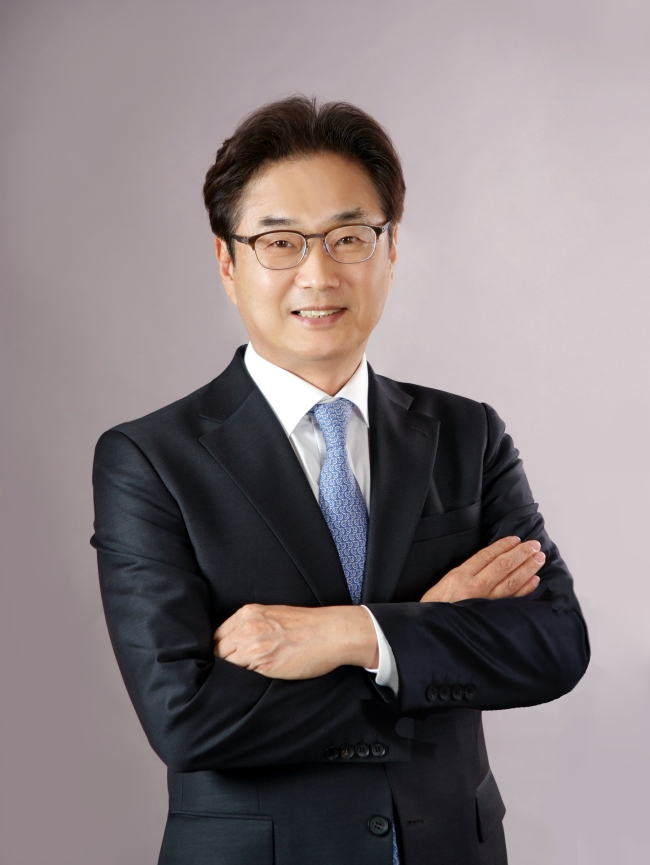Korean biopharma body seeks expanded gov’t support in 2018
By Sohn Ji-youngPublished : Jan. 1, 2018 - 14:52
South Korea’s representative biopharmaceutical business body called for expanded government funding toward biotech research and development in 2018, stressing that sustained R&D is central to the industry’s growth and success.
The Korea Pharmaceutical and Bio-pharma Manufacturers Association stated that the Korean pharmaceutical industry is now on the verge of becoming a globally competitive force and that now is the time to focus on retaining this momentum.
“For Korea’s pharma industry to become a major growth driver, the government must expand its R&D funding and engage in effective distribution,” said Korea Pharmaceutical and Bio-pharma Manufacturers Association Chairman Won Hee-mok in his New Year’s address.
The Korea Pharmaceutical and Bio-pharma Manufacturers Association stated that the Korean pharmaceutical industry is now on the verge of becoming a globally competitive force and that now is the time to focus on retaining this momentum.
“For Korea’s pharma industry to become a major growth driver, the government must expand its R&D funding and engage in effective distribution,” said Korea Pharmaceutical and Bio-pharma Manufacturers Association Chairman Won Hee-mok in his New Year’s address.

New drug development is a lengthy, high-risk and capital-intensive endeavor. According to the KPBMA, it takes an average of 10 years and around $2.4 billion in funding to develop a new drug.
The association further called for wider financial incentives and regulatory support for companies that are working to develop new, innovative drug candidates and technologies.
“Strong investment into facilities for creating high-quality drugs and tax incentives for innovative new drug development will forge an environment where Korean-made drugs can become globally competitive,” Won said.
On its end, the KPBMA is planning to contribute to the country’s new drug development efforts by forming a new center that will offer artificial intelligence technologies to aid new drug R&D.
The biopharma business association is slated to begin procedures to build Korea’s first AI-backed drug development support center designed to expedite efforts by local drugmakers to develop new blockbuster therapies.
The drug development typically begins by examining around 5,000 to 10,000 new potential drug candidate substances and narrowing it down to one substance worthy of being further pursued.
This early development stage is where AI and big data can lend a major guidance, and the central purpose of the upcoming AI-backed drug development support center, according to the KPBMA.
The KPBMA and partners including the Korea Health Industry Development Institute are preparing to initiate a new committee tasked with leading the center’s establishment this month.
“The costs of developing a new drug are rising, while the success rate is declining,” Won said during a year-end press conference held in Seoul last month.
“Big data combined with AI technologies will raise the likelihood of a new drug’s success while cutting down development time and costs. It will help buttress the competitiveness of Korea’s biopharma industry as well.”
Other major issues in line for the association include cracking down on corruption — most notably drug companies’ offering kickbacks to doctors in exchange for prescribing its drugs.
The KPBMA is also planning to introduce new, expanded programs to promote open innovation and joint R&D between Korean and foreign pharma firms in 2018, it said.
By Sohn Ji-young (jys@heraldcorp.com)











![[Today’s K-pop] BTS pop-up event to come to Seoul](http://res.heraldm.com/phpwas/restmb_idxmake.php?idx=644&simg=/content/image/2024/04/17/20240417050734_0.jpg&u=)




![[KH Explains] Hyundai's full hybrid edge to pay off amid slow transition to pure EVs](http://res.heraldm.com/phpwas/restmb_idxmake.php?idx=652&simg=/content/image/2024/04/18/20240418050645_0.jpg&u=20240419100350)

![[Today’s K-pop] Zico drops snippet of collaboration with Jennie](http://res.heraldm.com/phpwas/restmb_idxmake.php?idx=642&simg=/content/image/2024/04/18/20240418050702_0.jpg&u=)